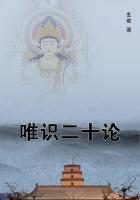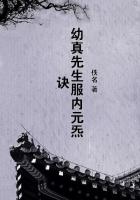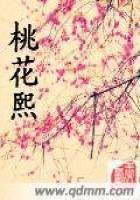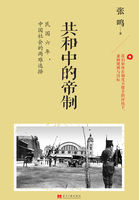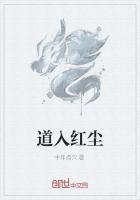THE "dromedary" of Egypt and Syria is not the two-humped animal described by that name in books of natural history, but is, in fact, of the same family as the camel, to which it stands in about the same relation as a racer to a cart-horse.
The fleetness and endurance of this creature are extraordinary. It is not usual to force him into a gallop, and I fancy from his make that it would be quite impossible for him to maintain that pace for any length of time; but the animal is on so large a scale, that the jog-trot at which he is generally ridden implies a progress of perhaps ten or twelve miles an hour, and this pace, it is said, he can keep up incessantly, without food, or water, or rest, for three whole days and nights.
Of the two dromedaries which I had obtained for this journey, I mounted one myself, and put Dthemetri on the other. My plan was to ride on with Dthemetri to Suez as rapidly as the fleetness of the beasts would allow, and to let Myserri (who was still weak from the effects of his late illness) come quietly on with the camels and baggage.
The trot of the dromedary is a pace terribly disagreeable to the rider, until he becomes a little accustomed to it; but after the first half-hour I so far schooled myself to this new exercise, that I felt capable of keeping it up (though not without aching limbs) for several hours together. Now, therefore, I was anxious to dart forward, and annihilate at once the whole space that divided me from the Red Sea.
Dthemetri, however, could not get on at all. Every attempt which he made to trot seemed to threaten the utter dislocation of his whole frame, and indeed I doubt whether any one of Dthemetri's age (nearly forty, I think), and unaccustomed to such exercise, could have borne it at all easily; besides, the dromedary which fell to his lot was evidently a very bad one; he every now and then came to a dead stop, and coolly knelt down, as though suggesting that the rider had better get off at once and abandon the attempt as one that was utterly hopeless.
When for the third or fourth time I saw Dthemetri thus planted, I lost my patience, and went on without him. For about two hours, I think, I advanced without once looking behind me. I then paused, and cast my eyes back to the western horizon. There was no sign of Dthemetri, nor of any other living creature. This I expected, for I knew that Imust have far out-distanced all my followers. I had ridden away from my party merely by way of gratifying my impatience, and with the intention of stopping as soon as I felt tired, until I was overtaken. I now observed, however (this I had not been able to do whilst advancing so rapidly), that the track which I had been following was seemingly the track of only one or two camels. I did not fear that I had diverged very largely from the true route, but still I could not feel any reasonable certainty that my party would follow any line of march within sight of me.
I had to consider, therefore, whether I should remain where Iwas, upon the chance of seeing my people come up, or whether I would push on alone, and find my way to Suez. I had now learned that I could not rely upon the continued guidance of any track, but I knew that (if maps were right) the point for which I was bound bore just due east of Cairo, and I thought that, although I might miss the line leading most directly to Suez, I could not well fail to find my way sooner or later to the Red Sea. The worst of it was that I had no provision of food or water with me, and already I was beginning to feel thirst. I deliberated for a minute, and then determined that I would abandon all hope of seeing my party again, in the Desert, and would push forward as rapidly as possible towards Suez.
It was not, I confess, without a sensation of awe that Iswept with my sight the vacant round of the horizon, and remembered that I was all alone, and unprovisioned in the midst of the arid waste; but this very awe gave tone and zest to the exultation with which I felt myself launched.
Hitherto, in all my wandering, I had been under the care of other people - sailors, Tatars, guides, and dragomen had watched over my welfare, but now at last I was here in this African desert, and I MYSELF, AND NO OTHER, HAD CHARGE OF MYLIFE. I liked the office well. I had the greasiest part of the day before me, a very fair dromedary, a fur pelisse, and a brace of pistols, but no bread and no water; for that Imust ride - and ride I did.
For several hours I urged forward my beast at a rapid though steady pace, but now the pangs of thirst began to torment me.
I did not relax my pace, however, and I had not suffered long when a moving object appeared in the distance before me. The intervening space was soon traversed, and I found myself approaching a Bedouin Arab mounted on a camel, attended by another Bedouin on foot. They stopped. I saw that, as usual, there hung from the pack-saddle of the camel a large skin water-flask, which seemed to be well filled. I steered my dromedary close up alongside of the mounted Bedouin, caused my beast to kneel down, then alighted, and keeping the end of the halter in my hand, went up to the mounted Bedouin without speaking, took hold of his water-flask, opened it, and drank long and deep from its leathern lips. Both of the Bedouins stood fast in amazement and mute horror; and really, if they had never happened to see an European before, the apparition was enough to startle them. To see for the first time a coat and a waistcoat, with the semblance of a white human head at the top, and for this ghastly figure to come swiftly out of the horizon upon a fleet dromedary, approach them silently and with a demoniacal smile, and drink a deep draught from their water-flask - this was enough to make the Bedouins stare a little; they, in fact, stared a great deal -not as Europeans stare, with a restless and puzzled expression of countenance, but with features all fixed and rigid, and with still, glassy eyes. Before they had time to get decomposed from their state of petrifaction I had remounted my dromedary, and was darting away towards the east.

